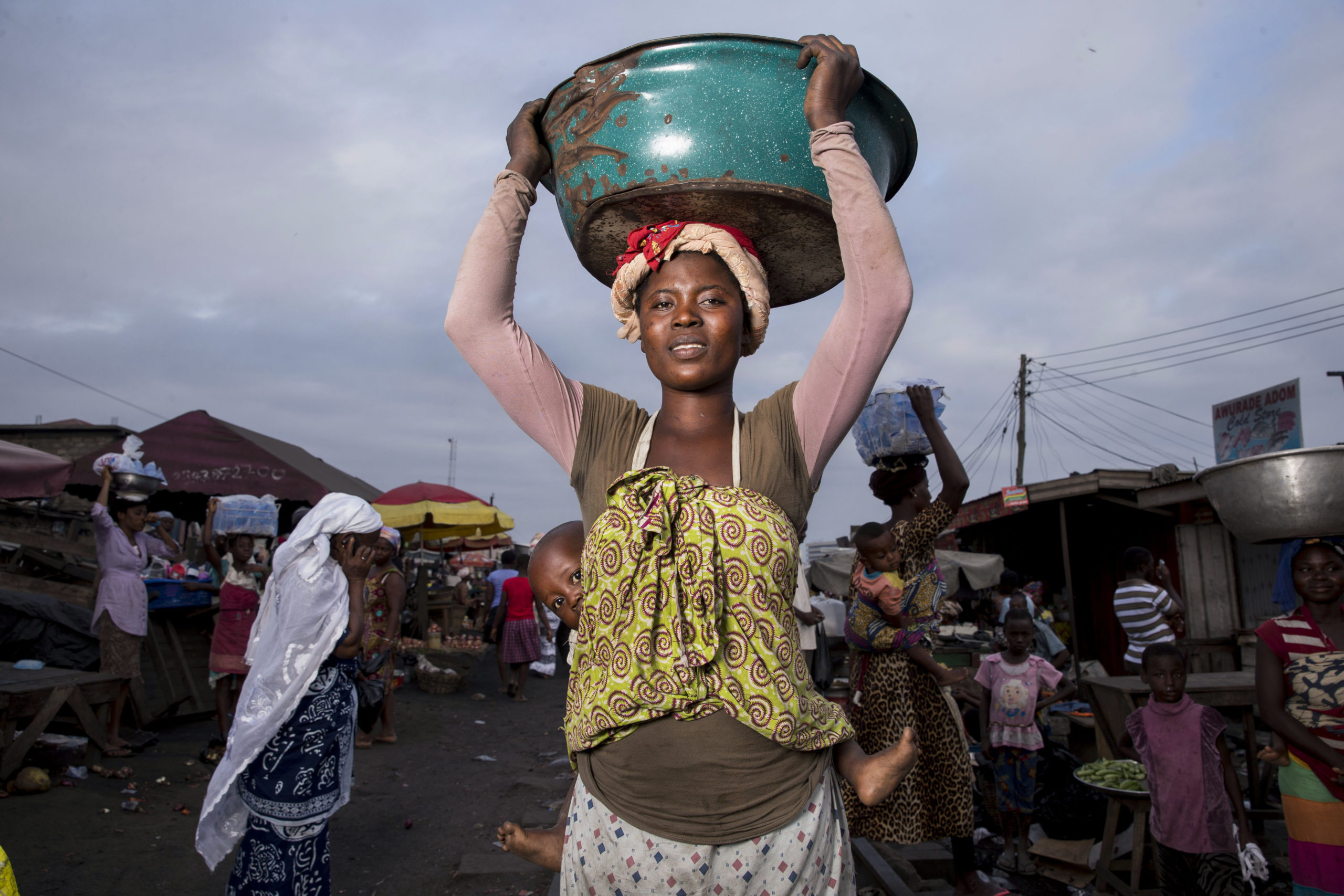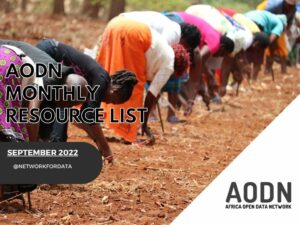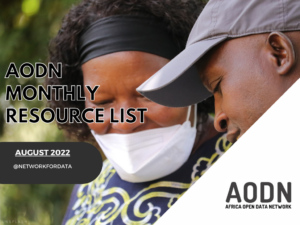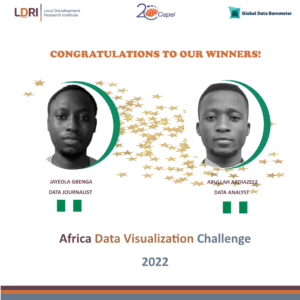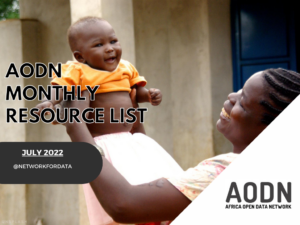A Conversation On The Availability and Use of Data on Violence Against Women and Girls (VAWG) in Sub-Saharan Africa
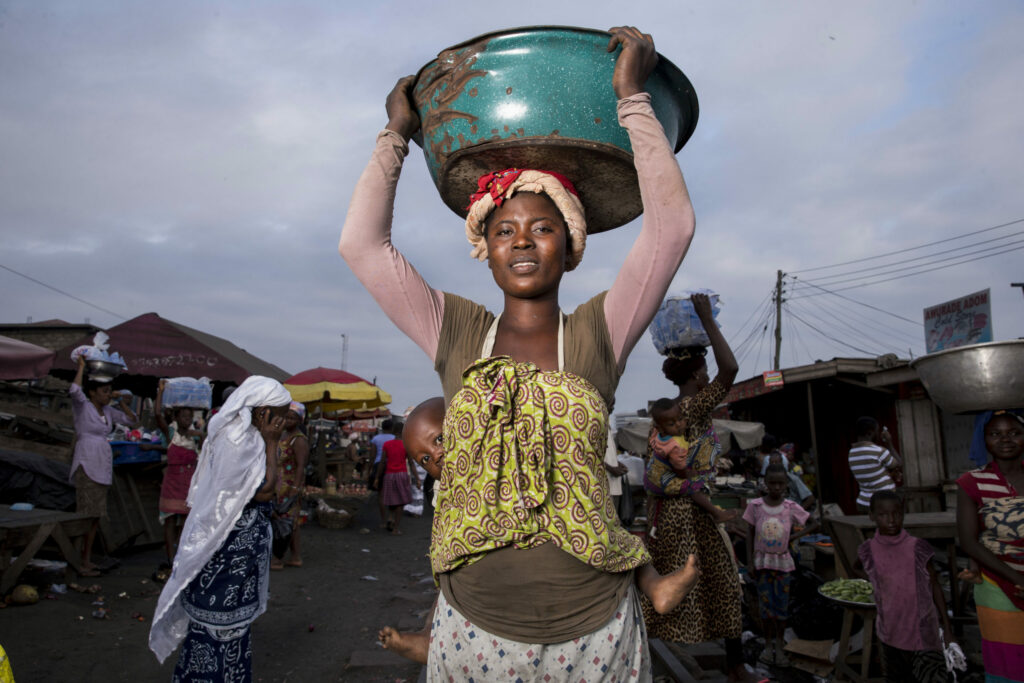
The availability, access to, and use of gender data is a critical foundation for initiatives that aim to improve women and girls’ socio-economic outcomes and to build a more inclusive and equitable world. Even with this understanding, however, data gaps especially on issues that disproportionately affect women and girls such as; Gender-Based Violence (GBV), reproductive health, and land ownership still persist in Sub-Saharan Africa and beyond. This together with limited access to the small amount of existing gender data and challenges in gender data utilization make gender data uptake and use harder.
Initiatives to address existing gaps in availability, access to and use of gender data increasingly have focused on mainstreaming gender into data production, advocacy on gender data, exploring new data sources capacity development, increased financing for gender data and designing gender-responsive and transformative policies among others.
The Africa Open Data Network’s Data Chat is an effort to advocate for better availability and use of development data. Through stakeholder convenings, we seek to explore gaps and opportunities in the publication and use of comprehensive and timely development data and evidence to inform inclusive and sustainable development programming. Our inaugural data chat convened stakeholders and experts on VAWG in Sub-Saharan Africa to explore gaps and opportunities in the publication, access to, and use of VAWG data especially during a pandemic when vulnerabilities are increased.
Availability of Data on Violence Against Women and Girls (VAWG) in Sub-Saharan Africa
The inaugural AODN data chat focused on the availability, access to, and use of VAWG data in Sub-Saharan Africa during the Covid-19 pandemic. We were joined by experts supporting different programs on VAWG in Sub-Saharan Africa including Ms. Sandra Nabulega a data researcher at Pollicy, Mr. Jean-Paul Murunga a Program Officer, End Sexual Violence at Equality Now, and Dr. Carolyne Ajema, Senior Gender, and GBV Technical Specialist at the International Centre for Research on Women (ICRW).
During the discussion, panelists explored the gender data ecosystem, the impact of the pandemic on the availability, access to, and use of VAWG data, and shared recommendations on how to collaboratively improve availability, access to, and use of data on VAWG to improve response, decision making and advocacy efforts, especially during a crisis.
In opening the discussion, Dr. Carol Ajema highlighted the importance of VAWG data in shedding light on VAWG entry points to mitigate risk factors across all levels and creating opportunities to better understand and prevent VAWG. Without data, we cannot know the prevalence of VAWG or respond to it. Data and statistics paint a clear picture to stakeholders on areas that need immediate attention and provide a basis for engaging with stakeholders and policymakers on potential solutions. Through the use of data, stakeholders are also able to raise awareness and advocate for accountability on VAWG. It is also imperative, as pointed out by our panelists, that this data goes beyond just numbers/figures to include lived experiences of survivors who need to be adequately supported through proper interventions. Having access to data can also provide important insights into and inform the development of tailored strategies and interventions that may be particularly effective in preventing VAWG during similar crises such as the covid-19 pandemic in the future.
Organizations and individuals who joined the conversation also pointed out that the pandemic has significantly impacted the collection, access to, and use of VAWG data. Jean-Paul Murunga pointed out that available data during Covid-19 confirmed a deeper problem, especially on GBV, as programming using the data rarely involved survivors’ participation. He reiterated the importance of finding ways of involving survivors in drafting solutions. Data privacy and confidentiality concerns were also raised, especially with digital platforms being used to report VAWG during the pandemic. Where anonymization is not built into the platforms, they have the potential to leave behind a trail that could expose survivors to harm. Restriction measures such as lockdowns and isolations compounded by fear of stigmatization were also highlighted as reasons for underreporting.
“Violence against women occurs in all spaces and spheres of human interaction, whether public or private.”
Sandra Nabulega, Data Researcher, Pollicy
While stakeholders have been able to access, collect and use VAWG data, significant gaps and missing links in this data has been its inadequacy; fragmentation; gaps on availability, reliability, timeliness, and disaggregation of VAWG data; lack of documentation of community and lived experiences of survivors; and the lack of clear data sharing and accountability mechanisms. According to Sandra Nabulega, some of this is due to the failure to consolidate data from different actors and service providers and the inconsistency in the disaggregation, quality, timeliness, and reliability of data from multiple actors. These gaps have presented inadequacies in synthesizing the limited available data for meaningful action which has resulted in duplicity of efforts among actors and unresponsiveness to the needs of survivors
Going forward, multiple actions can be taken to improve the availability, access to, and use of ethically sound VAWG data in Sub-Saharan Africa. These include; building the capacity of grassroots organizations to collect and use VAWG data; increased disaggregation on VAWG data by age, geographical location, income, and more which will reveal a more complete and nuanced picture of the realities faced by victims; developing safe ways to facilitate collection of VAWG data that center survivor safety; advocating for governments, private sector actors, and civil society to increase in gender data-driven solutions; developing and disseminating clear VAWG data standards that will go a long way in ensuring the comprehensiveness of data collected across the ecosystem; working with global, regional, and local ethics committees to design standards that are context responsive; and collaborations and consultations with multiple stakeholders, including government, CSOs, women’s rights organizations, academia, and citizen-based data communities. These consultations and collaborations provide a platform for the development of a common agenda around gender data and the prioritization of datasets given available resources to support ongoing efforts towards gender equality.
AODN presents an opportunity to continue building these collaborations through our data chat. By providing a platform for stakeholders to share insights on how to improve the availability, access to, and use of development data and evidence to inform inclusive and sustainable development interventions in Sub-Saharan Africa.
To follow and contribute to this conversation follow .#AodnDataChat and #GenderDataAfrica on Twitter.
Please sign up for our newsletter here to join our next Data Chat.
Resources
- A Gender Lens on COVID-19: Pandemics and Violence against Women and Children. (2020). Center for Global Development. https://www.cgdev.org/blog/gender-lens-covid-19-pandemics-and-violence-against-women-and-children
- ASSESSING DATA AND STATISTICAL CAPACITY GAPS FOR BETTER GENDER STATISTICS: FRAMEWORK AND IMPLEMENTATION GUIDELINES https://paris21.org/sites/default/files/inline-files/Framework%202020_update_web_0.pdf
- Cázarez-Grageda, K., Schmidt, J., & Ranjan, R. (n.d.). REUSING CITIZEN-GENERATED DATA FOR OFFICIAL REPORTING A quality framework for national statistical office-civil society organisation engagement. https://paris21.org/sites/default/files/inline-files/CGD_FINAL.pdf
- Bold Gender Data Commitments Accelerate Gender Equality. (n.d.). https://data2x.org/wp-content/uploads/2021/06/Generation-Equality-Forum-Infographic-FINAL.pdf
- MAKING WOMEN AND GIRLS VISIBLE:GENDER DATA GAPS AND WHY THEY MATTER https://www.unwomen.org/-/media/headquarters/attachments/sections/library/publications/2018/issue-brief-making-women-and-girls-visible-en.pdf?la=en&vs=2720
- Making open data work for gender equality. (2018, August 2). Local Development Research Institute (LDRI). https://www.developlocal.org/making-open-data-work-for-gender-equality/
- Technology-facilitated gender-based violence in the time of COVID-19 – ICRW | PASSION. PROOF. POWER. (2020, December 8). ICRW | PASSION. PROOF. POWER. https://www.icrw.org/technology-facilitated-gender-based-violence-in-the-time-of-covid-19/
- Tech-facilitated Gender-based Violence: Overview – ICRW | PASSION. PROOF. POWER. (2019, AugusTech-facilitated Gender-based Violence: Overview – ICRW | PASSION. PROOF. POWER. (2019, August 15). ICRW | PASSION. PROOF. POWER. https://www.icrw.org/publications/technology-facilitated-gender-based-violence-overview/
- The UN Women has developed a living document that summarizes principles and recommendations to individuals and organisations planning to embark on data collection on the impact of COVID-19 on violence against women and girls (VAWG) https://www.unwomen.org/-/media/headquarters/attachments/sections/library/publications/2020/vawg-data-collection-during-covid-19-compressed.pdf?la=en&vs=2339

